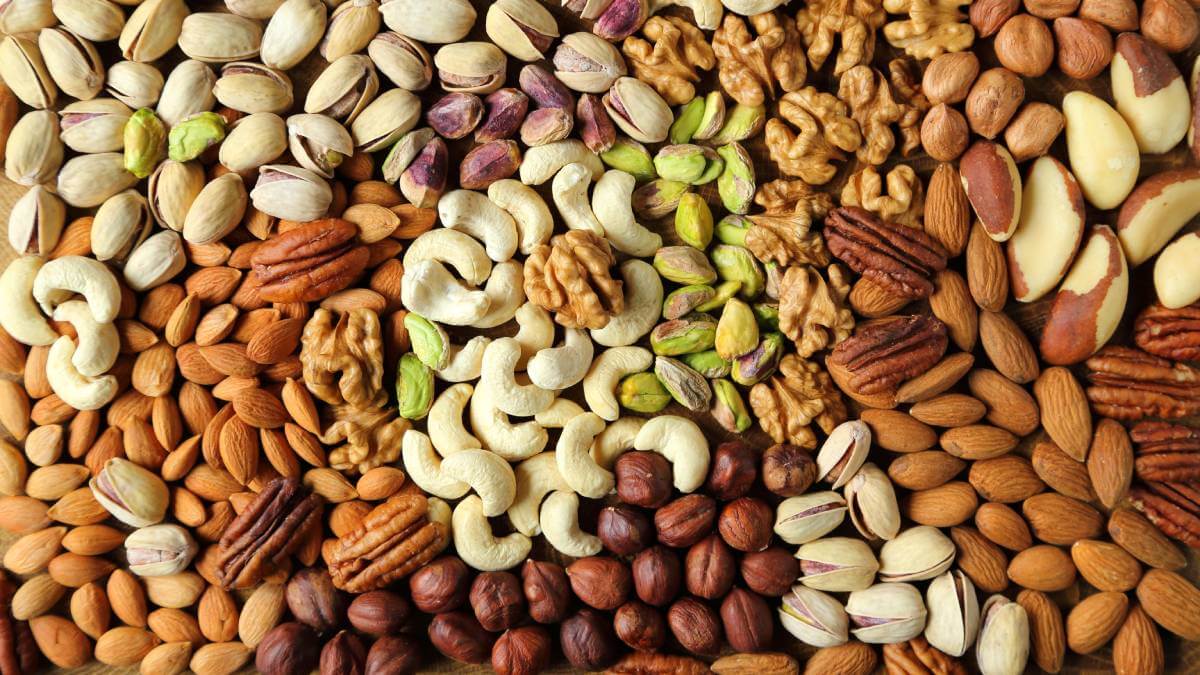Australian researchers have revealed that eating a moderate amount of nuts and seeds daily can dramatically lower your risk of developing non-alcoholic fatty liver disease (NAFLD).
Your liver is the largest internal organ in your body and is responsible for removing toxins and processing nutrients from food. All blood from the digestive system passes through the liver before travelling further in the body.
Fatty liver disease (FLD) is a common liver problem in Western countries, affecting around one in 10 people. Essentially, it is caused by an excess of fat in the liver cells. It’s normal to have a small amount of fat in the liver, but ideally fat should make up no more than 10 per cent of your liver’s total weight.
FLD falls into two general groups – alcoholic and non-alcoholic. Both types cause too much fat to build up in liver cells but have very different origins. As you might have guessed, alcoholic FLD is caused by excessive alcohol consumption over an extended period.
NAFLD is technically any FLD not caused by alcohol, but in reality, it is nearly always related to obesity, type 2 diabetes and an unhealthy diet.
Which nuts and seeds?
But scientists from Deakin University have discovered that you may be able to stave off the fat build-up in your liver cells just by eating a handful of nuts and seeds every day.
The researchers found that consuming between 15 and 30 grams of nuts and seeds daily could reduce the likelihood of developing NAFLD by as much as 15 per cent.
They analysed the prevalence of NAFLD and also how many nuts and seeds were consumed among more than 25,000 people who completed the National Health and Nutrition Examination Survey.
The results did not seem to be dependent on eating any particular types of nuts or seeds. Nuts counted in the study included almonds, almond butter, Brazil nuts, cashews, cashew butter, hazelnuts, macadamias, pecans, pine nuts, pistachios, walnuts, peanuts and peanut butter.
Seeds noted included pumpkin, flax, sesame and sesame butter, sunflower, psyllium and chia.
Who benefits most?
The benefits are not equal between the sexes. The positive effects of nuts and seeds seems to be much more pronounced in women than in men.
For women, consuming between 15 and 30 grams of nuts and seeds produced a 15 per cent drop in the likelihood of developing non-alcoholic FLD. But for men, consuming the same amount resulted in only a 9 per cent reduction.
That 15 per cent reduction seems to be the limit for benefits to women. The study found that women consuming more than 30 grams still had a risk reduction of only about 15 per cent.
Nuts and seeds have many health benefits aside from reducing your likelihood of NAFLD.
Nuts contain about 29 kilojoules of energy per gram and are high in monounsaturated fats (the good kind) and protein. Some nuts are also high in the amino acid arginine, which keeps blood vessels healthy.
Nuts are also rich in vitamins and minerals including E, B6, niacin and folate. Minerals in nuts include magnesium, zinc, iron, calcium, copper, selenium, phosphorus and potassium.
Seeds are very similar to nuts and are also a good source of protein, healthy fats and fibre. Both nuts and seeds help with weight loss by regulating fat absorption in the body and helping you to feel full for longer.
Do you eat nuts and seeds daily? Would you consider adding them to your diet after reading this? Let us know in the comments section below.
Also read: Even a small amount of red meat increases your diabetes risk

